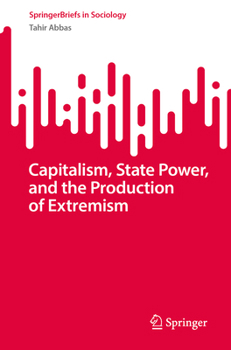Capitalism, State Power, and the Production of Extremism
This book develops a comprehensive Marxist theory of radicalisation by synthesising and extending the author's two decades of research in this area. The central argument of this book is that radicalisation cannot be fully understood without examining capitalism's role in creating and exacerbating the social, economic, and political conditions that give rise to it. It contends that radicalisation is fundamentally a product of the contradictions inherent in the capitalist mode of production, particularly in its neoliberal phase; that the intensification of exploitation, alienation, and social atomisation under neoliberal capitalism creates the structural conditions for various forms of radicalisation; that state responses to radicalisation, rooted in the logic of capital and often employing repressive measures, tend to reproduce and amplify the very conditions they seek to address; and that processes of radicalisation are shaped by the complicated relationship among global capitalist dynamics and local social, cultural, and political contexts. Therefore, effective approaches to countering radicalisation must address root causes by challenging the fundamental structures of capitalist society. In systematically situating contributions within a broader Marxist framework, the book offers a novel and timely intervention in the field of radicalisation studies. It provides scholars, students, and practitioners with a powerful framework for understanding and addressing one of the most pressing issues of our time and not only advances academic debates but also contributes to broader struggles for social justice and equality.
Related Subjects
Philosophy Political Science Politics & Social Sciences Social Science Social Sciences




